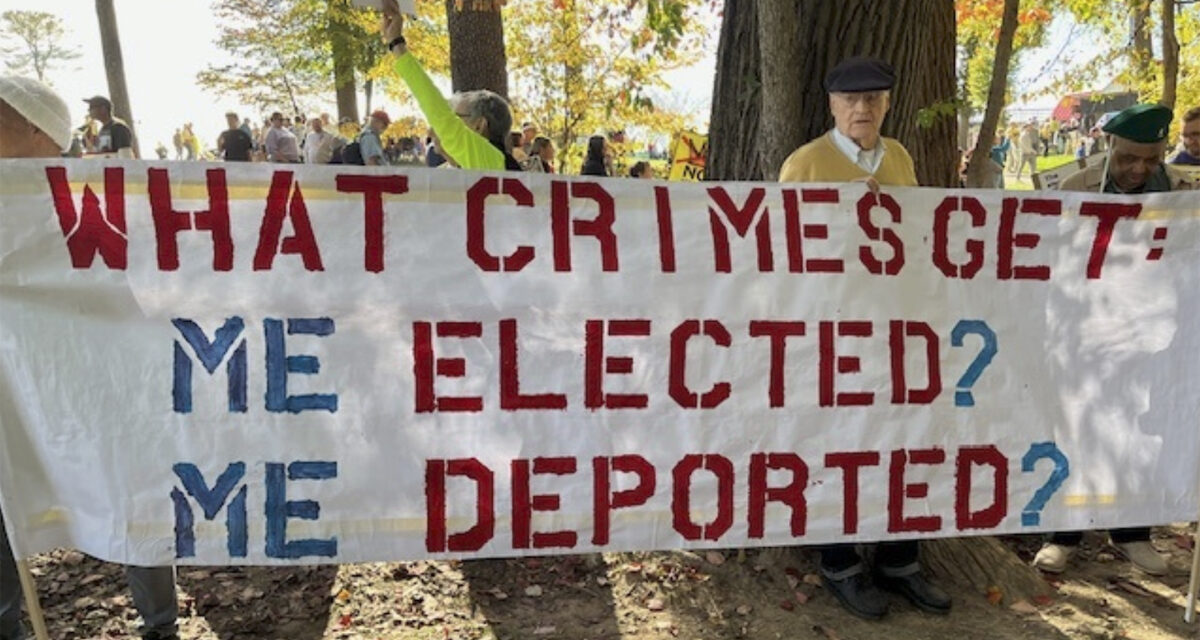Maryland Residents Participate in Nationwide 'No Kings' Protests While State Faces Environmental and Infrastructure Challenges

Summary
Full Article
Thousands of Maryland residents participated in 'No Kings 2.0' rallies across the state on Saturday, joining nationwide protests against President Donald Trump and his actions. Demonstrators filled streets in multiple locations including downtown Columbia, where several thousand people lined the streets with homemade protest placards. Republican politicians had previously characterized the demonstrators as people who 'hate America,' but many signs pushed back against these attacks, with one stating 'We the People Love America.'
In Queen Anne's County, where 62% of voters supported President Trump in the previous election, several hundred people gathered for the rally in Centreville's historic downtown. Participants waved hand-drawn signs by the roadside while others gathered in a courtyard where a musician performed and organizers opened the microphone for testimonials. Towson University students moved their rally off campus after school officials indicated speakers' names would be run through federal government databases and vetted for security reasons.
Meanwhile, Chesapeake Bay restoration efforts face significant challenges due to private shoreline ownership. Virtually all of the bay's shoreline is privately owned, meaning taxpayer-funded waterfront improvements often go to properties that limit public access. This situation creates tension between environmental restoration goals and public access desires, particularly in Anne Arundel County where only one of its 533 miles of shore is open for public swimming. The situation raises fundamental questions about balancing environmental needs with public enjoyment of natural resources.
Maryland continues to be a national leader in electric school bus adoption, with millions in state and federal funds distributed in recent years and hundreds of vehicles rolling out across multiple school districts. The state's aggressive push toward electric school transportation represents a significant shift in public fleet management and environmental policy that could influence other states' approaches to school transportation.
Public transportation cuts in Carroll County have created challenges for disability services in South Carroll. Since 2022, when the county reduced Carroll Transit's fixed bus routes from nine to seven, South Carroll has been without regular transit service. The situation particularly affects individuals like Owen Linville, who uses a wheelchair and relies on buses to travel from school to work. The limited schedule of demand-response buses means he cannot use them to return home after work and has only been able to use the service once to travel from his house to college.
Treasury Secretary Scott Bessent has urged the International Monetary Fund to sell an elite country club it owns in Montgomery County, arguing the organization should 'go back to their core mission.' In Annapolis politics, mayoral candidate Robert O'Shea is proposing broad changes to city financing, suggesting he could 'think outside the box to solve city and local governance issues' if elected.
The state also mourned the passing of Del. Charles Otto, a Republican representing the Lower Shore counties who served for 14 years in the House of Delegates. Colleagues remembered him for his knowledge on agricultural issues and passionate advocacy for the Eastern Shore. House Speaker Adrienne A. Jones described him as serving 'with integrity and an unwavering dedication to the people of District 38A.'

This story is based on an article that was registered on the blockchain. The original source content used for this article is located at citybiz
Article Control ID: 259021